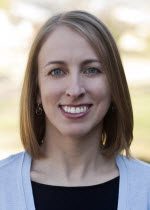
No Comments on Doody’s Special Topics List Selector: Hannah Rutledge, PhD, MLIS, AHIP 238
Hannah Rutledge, PhD, MLIS, AHIP
Director, Biotech Commons
University of Pennsylvania Libraries
Editor’s note: On a regular basis we publish profiles of librarians who have been an integral part of Doody Enterprises, whether they have served on our Library Board of Advisors, as a Librarian Selector for Doody’s Core Titles, or on the editorial board/as a List Selector for Doody’s Special Topics Lists. This month, we are profiling a librarian who served as a List Selector for the inaugural Doody’s Special Topics List on Health Equity: Hannah Rutledge of the University of Pennsylvania.
Where do you currently work and what is your position?
I am the director of the Biotech Commons at the University of Pennsylvania in Philadelphia.
Provide a brief description of your library and its services.
Formerly called the Biomedical Library, the Biotech Commons reopened in September 2021 after a major renovation of the main floor. Our book stacks are located on three lower levels, which were not within the scope of this renovation. It’s a beautiful space with 20 group study rooms, a large classroom, an event space/reading room, lots of new windows and natural light, and a wide array of seating options. We also have a state-of-the-art Digital Fabrication Lab, home to our expansive poster printing service and our research-focused 3D printing service, including nine 3D printers as well as laser cutters and laser scanners. Also, we have a Relaxation Room, a One Button Recording Studio, a Design Thinking Studio, and a Mixed Reality Lab. We’re also expanding our Bioinformatics services (we currently have an open position!). The University recently announced a $750 million commitment to STEM research, so our Libraries are excited to meet this growing need for our services. Of course, our staff are incredible experts and liaisons. They amaze me every day in the breadth and depth of their knowledge and the sundry of their accomplishments. The library would be nothing without our staff.
When did you start in medical librarianship? Tell us about that journey.
I began in early 2009 as a medical librarian at a pediatric hospital in Dallas, Texas. I was also working on my PhD full time, so it was a hectic but important period of growth for me. Our libraries were built for patients and families, so there was consumer health information, computers with internet access, free printing, leisure books for adults, and lots and lots of children’s books (all donated!). When I joined the team, there were four libraries with one librarian overseeing each. The first library was built a few years prior, in memory of a cancer patient who thought hospitals should have libraries to provide children with a sense of normalcy and a place to escape from the hospital room. Thus, in our libraries, there were “no white coats allowed.” We wanted to keep it a safe, special place for our young patients and their families. I absolutely loved working in a pediatric hospital – they had clowns on staff! Also, Halloween was by far the best day of the year. EVERYONE dressed up for it. I remember one Halloween we had the Magnet representatives come for a site visit for the renewal of our Magnet status. I found myself dressed as Cat in the Hat in a room with nursing executives (also in costume, though I can’t recall exactly what) and the Magnet folks, who looked out of place in regular suits. In retrospect, this job changed my life and my outlook on life. Still to this day when I get overwhelmed or stressed, I think back to so many experiences and interactions I had at that hospital – with patients I got to know, with families doing everything they could for their sick kids, and with the staff who brought cheer and hope every day to their jobs. Like many other hospital librarians, I could share a million special moments and memories. It was a truly special place, and the libraries were simply amazing. I was there nearly five years before I was contacted and offered a director position in a corporate library. And so my journey moved on…
Name two of the most important issues facing medical librarianship today.
- Creating true and genuine cultures of DEI, access, belonging, anti-racism, and authenticity.
- Recruitment, Retention, Mentorship, Succession Planning.
Tell us about your experience selecting titles for the inaugural Doody’s Special Topics List in Health Equity.
It was fun! It seemed daunting at first – how can we identify all the best books in the broad and vital topic of Health Equity? But it was a wonderful experience – the group was great, and the meetings were productive. We all did our part and it was interesting to see our work come together. I am proud of this project and the resulting list we compiled. I’m thankful for this opportunity to meet and work with librarians in this unique way.
What is one thing you want to make sure all librarians know about Doody’s services?
They are fabulous folks to work with. I have thoroughly enjoyed getting to know them and working with them. They welcome all ideas, they are open to conversations, they are kind and understanding and simply a pleasure to know. These characteristics make it fun to stop by their table at conferences, stay in touch via email and Zoom meetings, and to read their lists and publications (no, they did not pay me to say any of that – it’s all true from my experience!).
Anything else you’d like to share?
If you have further questions about my experience with Doody’s or simply want to connect, please feel free to reach out to me via email (mhr@upenn.edu) or on LinkedIn. I’m happy to talk libraries, provide support, brainstorm, or simply chat.


Leave a comment